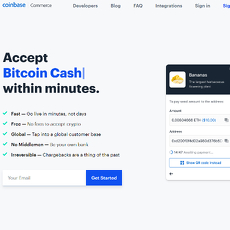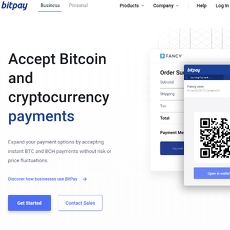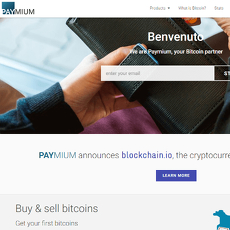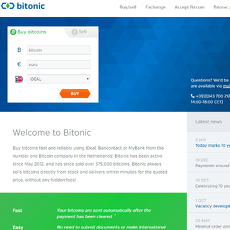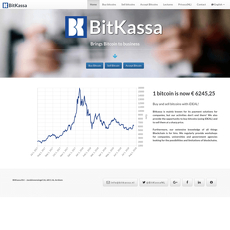Best Crypto Payment Gateways (2026) – Merchant Tools, Fees & Payouts
For merchants interested in expanding their business scope, it is crucial to incorporate a broad array of payment gateways to meet the needs of a large demographic. One of these payment processors should cater to customers looking to pay with cryptocurrencies. However, owing to several factors, adopting a crypto payment gateway might seem a tad difficult. This perceived downside is because crypto payment processors are not as established as their traditional counterparts.
In light of this, we have decided to explore the cryptocurrency payment gateway niche and highlight the factors that could help merchants pick viable crypto payment enablers. Thereafter, we will introduce you to the list of crypto payment gateway platforms offering topnotch services and belonging to the top echelon of the burgeoning market.
The basic way of accepting cryptocurrencies entails retailers to provide their public address to customers looking to make payments with digital assets. While this is a given, adopting this method, nonetheless, exposes merchants to several backdrops ranging from slow transaction verification speed to volatility. As such, it is better to adopt tools that automate the process and provide instant payment services as it is with traditional systems like PayPal, Mastercard, and other conventional payment Infrastructures.
These tools are commonly called cryptocurrency payment gateways since they offer retailers an opportunity of extending their products to individuals who find the benefits of using cryptocurrencies for their everyday needs appealing. Note that these solutions cater to online stores as well as brick and mortar outlets, which makes them ideal for retail services with diverse business models.
Surprisingly enough, the concept of crypto payment gateways is as old as cryptocurrency itself. For one, Coinsnap has been in existence since 2009, while BitPay started operations in 2011. Nevertheless, this has not stopped new entrants from questioning the status quo and giving the more established platforms a run for their money. Needless to say, this factor, among other things, ought to interest merchants, especially when they are in search of the best crypto payment gateway for retail sites.
There are two basic models of operations that crypto payment processors adopt. The first model only requires the gateway to avail payment processing plugins and APIs, which merchants can integrate into their websites. These integrations are triggered whenever a customer chooses to pay via cryptocurrency. Crypto payment solutions come with the tools that would project prices based on the current exchange rates of cryptocurrencies, allow customers to make instant payments, and store the funds in predefined storage facilities. Some solutions even go as far as allowing merchants to receive crypto payments in their preferred traditional banks.
The second model caters to brick and mortar outlets, thereby allowing customers to physically pay for goods or services with cryptocurrencies. Therefore, the ideal way to go about this is to provide PoS machines specially designed to work with crypto debit cards. With this, merchants can offer goods to customers who walk into their stores in the hope of using their crypto plastic cards to facilitate payments. Note that the only difference between these models is the inclusion of a hardware device in the latter framework. Other than that, both models incorporate integrations that enable a systemic pathway for crypto transactions ideal for online and physical stores. In some cases, these platforms incorporate both models to give them better coverage of a multifaceted retail business.
While there is no doubt that stores and service providers would have to implement conventional payment processors to appeal to a traditional user base, there is, however, an ongoing debate about the safety and viability of adopting crypto payment gateways. This argument stems from the assertion that cryptocurrencies are extremely volatile and lack the level of liquidity that fiat money avails. Since cryptocurrencies experience unprecedented price fluctuations, it becomes a tad difficult to peg the crypto equivalence of the prices of goods and services. More so, there is no guarantee that the crypto price of a product at the time of executing an order would still be valid at the time of processing the transaction.
The safety of crypto storage facilities and exchange platforms is also a recurring issue. Merchants are skeptical about incorporating a payment system that makes them susceptible to crypto thefts and scams. This notion holds as retailers would have to convert cryptos to fiat money in exchanges, which might expose them to all sorts of threats. Besides, holding crypto automatically puts merchants at risk of falling victims to crypto attacks.
Although these reservations are valid, nonetheless, there are ways merchants can bypass apparent challenges. First, opting for a quality crypto payment processor allows merchants to circumvent issues relating to volatility. These solutions are adept in facilitating payment services that are free from the effects of price fluctuations. Regarding the threat associated with crypto payments, viable processors offer a myriad of storage facilities and features that make it a tad difficult for hackers to steal funds. In some cases, crypto payment gateways do not offer third-party custodial services, in turn, providing full autonomy to users. Also, a majority of solutions enable multifactor authentication systems just as traditional gateways. Likewise, you can transfer funds directly to a hardware wallet, which is perhaps the safest way of storing crypto. Better still, you can convert it to fiat currency and get paid via your bank.
Needless to say, the apparent improvement in the security standards of the crypto industry has rubbed off on the crypto payment gateway niche.
Having highlighted the fundamentals of the concept of a crypto payment processor and some of the benefits of using one, the next section will discuss factors that you should consider when choosing a platform for your crypto payment needs.
Assessing the jurisdiction of crypto payment gateways is the first factor to consider before going all out to subscribe to one. The information garnered from this analysis will help you gauge the compatibility of cryptocurrency merchant services with your business model. For retail websites or stores catering to a global market, it is ideal to opt for services that have infrastructures in place to ensure that you receive crypto seamlessly from anywhere in the world. However, if you opt for a geo-selective payment gateway, ascertain that it supports your location or the region where you majorly market your products or services. Besides, you can determine a platform’s affinity for a broader market by checking the number and the list of fiat currencies it supports.
We mentioned earlier that security is one of the major challenges of crypto gateway platforms. Therefore, you ought to take the time to research the safety of the crypto payment gateway you are looking to adopt. Ensure that it enables two-factor authentication systems and encryption protocols that hides the details of customers from unauthorized entities. Also, you should opt for a service with a good reputation as regards the tenacity of its security systems. It is advisable to avoid platforms that have little or no experience in the crypto storage or security niche. This notion is especially true for merchants who would prefer to trust payment processors with their funds.
Based on the custodial framework incorporated, there are two classifications of cryptocurrency payment gateways. The first is custodial services, which offer to hold crypto funds on behalf of merchants until they request for it or choose to have it transferred into their wallets/banks. Here, the safety of the funds in question depends on the security measures that the payment processor implements. On the other hand, there are non-custodial payment gateways that transfer funds to merchants’ wallets as soon as they process a new payment. In this variation, the merchant is responsible for the security of digital assets.
In light of the disparity between these two classes of crypto payment processors, we suggest that you determine the framework that best suits your business as well as the upsides and downsides of adopting it. For merchants who opt for non-custodial services, you ought to ascertain that you have the right tools to ensure that your funds are beyond the reach of hackers.
Another vital factor is the seamlessness of the payment processor. You do not want to adopt a service unable to guarantee instant payment processing capabilities, which is the same as manually giving out your public wallet to customers. Note that the processor’s speed determines its capacity to deliver payment infrastructures that evades the impacts of crypto’s volatility. Therefore, it is advisable to find out the average time it takes for the payment gateway under consideration to verify transactions.
As it is with traditional payment gateways, it is imperative to verify the customer support culture of the crypto payment processor you are looking to adopt. Here, you ought to ascertain that the system offers quality support to merchants who have opted for its payment integrations. The telling factor in this review section is the quality of the communication channels made available and the propensity of the provider to lead merchants through the integration process. Likewise, it is advisable to determine the flexibility of the payment processor beforehand. By doing so, you are certain that scaling up your payment capacity will not come up as an issue, even as your customer base increases.
Since instant payment gateways unburden you of the need to manually accept cryptocurrency, you are required to integrate third-party systems, which activate whenever a client clicks the crypto payment option. Owing to the need for integration, it is advisable to check that the pop-up window, triggered when customers choose to process crypto payments, has a premium user interface. It will surprise you how this factor could reduce abandoned checkouts. On the contrary, in cases where you only need to share links or incorporate the app of the payment gateway, you should emphasize on accessing quality designs with acceptable loading speed.
More often than not, coin payments processors do not charge clients for accepting crypto. However, ensure that there are no hidden charges or extra costs associated with withdrawing or storing cryptocurrency.
The Number of Cryptocurrencies the Gateway Supports
We suggest that you consider the demand of your customers when choosing a payment gateway. Ensure that the solution you eventually adopt supports the cryptocurrencies that your customer base predominantly favors. While a majority of crypto payment gateways stick to popular cryptocurrencies like Bitcoin, Ethereum, Litecoin, and XRP, it is, nonetheless, advisable to prioritize your customers’ crypto preference.
Knowing fully well that the quality of cryptocurrency payment gateways directly contributes to crypto mainstream adoption, we at Cryptolinks have, therefore, taken the time to research the niche and highlight top-performing solutions offering related services. To achieve this, we have incorporated an organic research methodology that allows us to dissect the workings of these solutions and use the aforementioned recommendations to examine their efficacy.
First, we gauged the market reach of the payment gateways under review. Here, we ascertained that they cater to a global market and are not geo-selective. Then, we focused on the security measures available to merchants as well as the reputation of each payment processor. Thereafter, we considered the framework of each platform as regards crypto custody and how it stretches its security systems. We expect payment gateways to enable security features that suit their custodial framework and protect the interest of their clients.
After examining safety measures, we assessed the customer support culture of each platform and their capacity to avail scaling features that will help merchants or retailers customize services to the volume of payments requested on their sites. Likewise, we gauged the speed of the payment gateways under review and ensured that only those that avail instant payment processing services featured on our list. Lastly, we examined the user interface of the platforms’ apps, integrations, and websites, as well as the number of cryptocurrencies they support, to reach a verdict.
In the end, we found 9 crypto payment gateways that performed well after undergoing our rigorous research process. We have attached a separate coin payment review article for each platform and suggest that you read all before picking the most suitable service.
In light of this, we have decided to explore the cryptocurrency payment gateway niche and highlight the factors that could help merchants pick viable crypto payment enablers. Thereafter, we will introduce you to the list of crypto payment gateway platforms offering topnotch services and belonging to the top echelon of the burgeoning market.
What Are Cryptocurrency Payment Gateways?
The basic way of accepting cryptocurrencies entails retailers to provide their public address to customers looking to make payments with digital assets. While this is a given, adopting this method, nonetheless, exposes merchants to several backdrops ranging from slow transaction verification speed to volatility. As such, it is better to adopt tools that automate the process and provide instant payment services as it is with traditional systems like PayPal, Mastercard, and other conventional payment Infrastructures.
These tools are commonly called cryptocurrency payment gateways since they offer retailers an opportunity of extending their products to individuals who find the benefits of using cryptocurrencies for their everyday needs appealing. Note that these solutions cater to online stores as well as brick and mortar outlets, which makes them ideal for retail services with diverse business models.
Surprisingly enough, the concept of crypto payment gateways is as old as cryptocurrency itself. For one, Coinsnap has been in existence since 2009, while BitPay started operations in 2011. Nevertheless, this has not stopped new entrants from questioning the status quo and giving the more established platforms a run for their money. Needless to say, this factor, among other things, ought to interest merchants, especially when they are in search of the best crypto payment gateway for retail sites.
How Do Crypto Payment Processors Work?
There are two basic models of operations that crypto payment processors adopt. The first model only requires the gateway to avail payment processing plugins and APIs, which merchants can integrate into their websites. These integrations are triggered whenever a customer chooses to pay via cryptocurrency. Crypto payment solutions come with the tools that would project prices based on the current exchange rates of cryptocurrencies, allow customers to make instant payments, and store the funds in predefined storage facilities. Some solutions even go as far as allowing merchants to receive crypto payments in their preferred traditional banks.
The second model caters to brick and mortar outlets, thereby allowing customers to physically pay for goods or services with cryptocurrencies. Therefore, the ideal way to go about this is to provide PoS machines specially designed to work with crypto debit cards. With this, merchants can offer goods to customers who walk into their stores in the hope of using their crypto plastic cards to facilitate payments. Note that the only difference between these models is the inclusion of a hardware device in the latter framework. Other than that, both models incorporate integrations that enable a systemic pathway for crypto transactions ideal for online and physical stores. In some cases, these platforms incorporate both models to give them better coverage of a multifaceted retail business.
Should Your Business Opt For A Crypto Payment Gateway?
While there is no doubt that stores and service providers would have to implement conventional payment processors to appeal to a traditional user base, there is, however, an ongoing debate about the safety and viability of adopting crypto payment gateways. This argument stems from the assertion that cryptocurrencies are extremely volatile and lack the level of liquidity that fiat money avails. Since cryptocurrencies experience unprecedented price fluctuations, it becomes a tad difficult to peg the crypto equivalence of the prices of goods and services. More so, there is no guarantee that the crypto price of a product at the time of executing an order would still be valid at the time of processing the transaction.
The safety of crypto storage facilities and exchange platforms is also a recurring issue. Merchants are skeptical about incorporating a payment system that makes them susceptible to crypto thefts and scams. This notion holds as retailers would have to convert cryptos to fiat money in exchanges, which might expose them to all sorts of threats. Besides, holding crypto automatically puts merchants at risk of falling victims to crypto attacks.
Although these reservations are valid, nonetheless, there are ways merchants can bypass apparent challenges. First, opting for a quality crypto payment processor allows merchants to circumvent issues relating to volatility. These solutions are adept in facilitating payment services that are free from the effects of price fluctuations. Regarding the threat associated with crypto payments, viable processors offer a myriad of storage facilities and features that make it a tad difficult for hackers to steal funds. In some cases, crypto payment gateways do not offer third-party custodial services, in turn, providing full autonomy to users. Also, a majority of solutions enable multifactor authentication systems just as traditional gateways. Likewise, you can transfer funds directly to a hardware wallet, which is perhaps the safest way of storing crypto. Better still, you can convert it to fiat currency and get paid via your bank.
Needless to say, the apparent improvement in the security standards of the crypto industry has rubbed off on the crypto payment gateway niche.
What Are the Factors to Consider When Choosing A Crypto Payment Gateway for Your Business?
Having highlighted the fundamentals of the concept of a crypto payment processor and some of the benefits of using one, the next section will discuss factors that you should consider when choosing a platform for your crypto payment needs.
The Jurisdiction and Fiat Currencies Supported
Assessing the jurisdiction of crypto payment gateways is the first factor to consider before going all out to subscribe to one. The information garnered from this analysis will help you gauge the compatibility of cryptocurrency merchant services with your business model. For retail websites or stores catering to a global market, it is ideal to opt for services that have infrastructures in place to ensure that you receive crypto seamlessly from anywhere in the world. However, if you opt for a geo-selective payment gateway, ascertain that it supports your location or the region where you majorly market your products or services. Besides, you can determine a platform’s affinity for a broader market by checking the number and the list of fiat currencies it supports.
The Safety of The Crypto Payment Processor
We mentioned earlier that security is one of the major challenges of crypto gateway platforms. Therefore, you ought to take the time to research the safety of the crypto payment gateway you are looking to adopt. Ensure that it enables two-factor authentication systems and encryption protocols that hides the details of customers from unauthorized entities. Also, you should opt for a service with a good reputation as regards the tenacity of its security systems. It is advisable to avoid platforms that have little or no experience in the crypto storage or security niche. This notion is especially true for merchants who would prefer to trust payment processors with their funds.
The Custodial Framework of The Gateway Service
Based on the custodial framework incorporated, there are two classifications of cryptocurrency payment gateways. The first is custodial services, which offer to hold crypto funds on behalf of merchants until they request for it or choose to have it transferred into their wallets/banks. Here, the safety of the funds in question depends on the security measures that the payment processor implements. On the other hand, there are non-custodial payment gateways that transfer funds to merchants’ wallets as soon as they process a new payment. In this variation, the merchant is responsible for the security of digital assets.
In light of the disparity between these two classes of crypto payment processors, we suggest that you determine the framework that best suits your business as well as the upsides and downsides of adopting it. For merchants who opt for non-custodial services, you ought to ascertain that you have the right tools to ensure that your funds are beyond the reach of hackers.
The Transaction Processing Speed of The Payment Gateway
Another vital factor is the seamlessness of the payment processor. You do not want to adopt a service unable to guarantee instant payment processing capabilities, which is the same as manually giving out your public wallet to customers. Note that the processor’s speed determines its capacity to deliver payment infrastructures that evades the impacts of crypto’s volatility. Therefore, it is advisable to find out the average time it takes for the payment gateway under consideration to verify transactions.
The Customer Support and The Flexibility of The Payment Gateway
As it is with traditional payment gateways, it is imperative to verify the customer support culture of the crypto payment processor you are looking to adopt. Here, you ought to ascertain that the system offers quality support to merchants who have opted for its payment integrations. The telling factor in this review section is the quality of the communication channels made available and the propensity of the provider to lead merchants through the integration process. Likewise, it is advisable to determine the flexibility of the payment processor beforehand. By doing so, you are certain that scaling up your payment capacity will not come up as an issue, even as your customer base increases.
The User Interface of The Platform
Since instant payment gateways unburden you of the need to manually accept cryptocurrency, you are required to integrate third-party systems, which activate whenever a client clicks the crypto payment option. Owing to the need for integration, it is advisable to check that the pop-up window, triggered when customers choose to process crypto payments, has a premium user interface. It will surprise you how this factor could reduce abandoned checkouts. On the contrary, in cases where you only need to share links or incorporate the app of the payment gateway, you should emphasize on accessing quality designs with acceptable loading speed.
The Coin Payment Fees
More often than not, coin payments processors do not charge clients for accepting crypto. However, ensure that there are no hidden charges or extra costs associated with withdrawing or storing cryptocurrency.
The Number of Cryptocurrencies the Gateway Supports
We suggest that you consider the demand of your customers when choosing a payment gateway. Ensure that the solution you eventually adopt supports the cryptocurrencies that your customer base predominantly favors. While a majority of crypto payment gateways stick to popular cryptocurrencies like Bitcoin, Ethereum, Litecoin, and XRP, it is, nonetheless, advisable to prioritize your customers’ crypto preference.
How Did Cryptolinks Compile Its List of Best Payment Gateway for Cryptocurrencies?
Knowing fully well that the quality of cryptocurrency payment gateways directly contributes to crypto mainstream adoption, we at Cryptolinks have, therefore, taken the time to research the niche and highlight top-performing solutions offering related services. To achieve this, we have incorporated an organic research methodology that allows us to dissect the workings of these solutions and use the aforementioned recommendations to examine their efficacy.
First, we gauged the market reach of the payment gateways under review. Here, we ascertained that they cater to a global market and are not geo-selective. Then, we focused on the security measures available to merchants as well as the reputation of each payment processor. Thereafter, we considered the framework of each platform as regards crypto custody and how it stretches its security systems. We expect payment gateways to enable security features that suit their custodial framework and protect the interest of their clients.
After examining safety measures, we assessed the customer support culture of each platform and their capacity to avail scaling features that will help merchants or retailers customize services to the volume of payments requested on their sites. Likewise, we gauged the speed of the payment gateways under review and ensured that only those that avail instant payment processing services featured on our list. Lastly, we examined the user interface of the platforms’ apps, integrations, and websites, as well as the number of cryptocurrencies they support, to reach a verdict.
In the end, we found 9 crypto payment gateways that performed well after undergoing our rigorous research process. We have attached a separate coin payment review article for each platform and suggest that you read all before picking the most suitable service.

